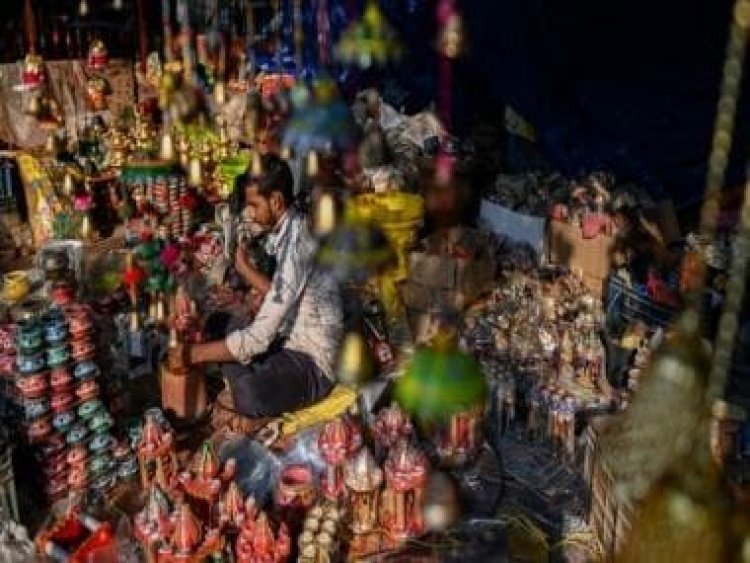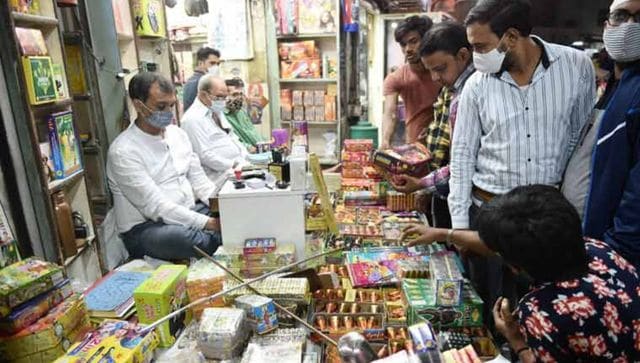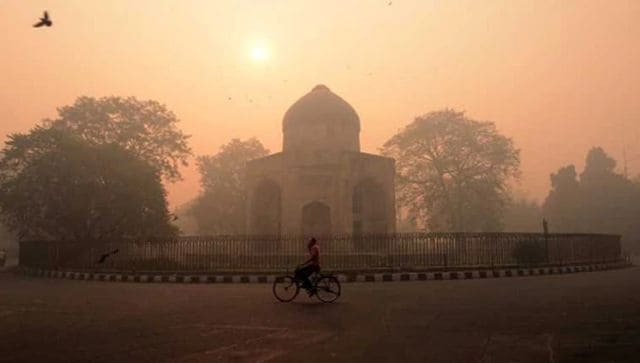Breath of Fresh Air: Why Delhi may not choke this Diwali
Breath of Fresh Air: Why Delhi may not choke this Diwali

Delhi may not breathe toxic air during Diwali as the festival falls in October this year instead of chilly November. As per experts, Delhi, Pune and Mumbai are expected to witness a less polluted festival of lights this time.
System of Air Quality and Weather Forecasting and Research (SAFAR)-Indian Institute of Tropical Meteorology (IITM) experts told Times of India (TOI) that cold air traps pollutants near the earth’s surface in November, which leads to surge in air pollution levels.
Moreover, due to the burning of firecrackers and farm stubble as well as vehicular emissions among other factors, pollution spikes during Diwali.
Why Diwali may be less polluted this year in the National Capital? How has Delhi fared during past Diwalis? What is the weather prediction for October in the city?
Let’s analyse this in detail.
ALSO READ: The new and improved plan to battle air pollution in Delhi
Less polluted Diwali likely
Diwali shifts according to the Hindu calendar every year, however, it mostly falls between the last 10 days of October to the first half of November, reports ThePrint.
During the festival, at night when the temperature changes due to fireworks, it adversely impacts the pollution level, experts told TOI.
“Inversions occur during the cooler winter months like November, when normal atmospheric conditions become inverted, with warm air above the cool air preventing vertical mixing of air. The cold air traps pollutants near the surface, causing levels to rise, especially during the night-time in colder months,” Dr B S Murthy, project director of IITM-SAFAR, told the newspaper.
As October is less cold than November, Murthy said some cities can see “a cleaner Diwali due to meteorological conditions, even if the emissions from firecrackers are the same as last year’s Diwali”.
A stricter cracker ban
Like in previous years, the Delhi government continues to ban the production, storage, distribution and purchase of all types of firecrackers.

This year, the Arvind Kejriwal government has also prohibited the online sale and delivery of firecrackers in Delhi till 1 January next year.
“…to save people from pollution in Delhi like last year this time also the production, storage, sale and use of all types of firecrackers are being completely banned so that lives can be saved,” Delhi environment minister Gopal Rai said in September earlier.
Upholding the Delhi government’s ban, the Supreme Court on Monday refused to allow the sale and purchase of firecrackers in the city.
The plea challenging the blanket ban on the sale and purchase and usage of firecrackers during Diwali was filed by BJP MP Manoj Tiwari.
“We will not lift the ban on firecrackers in the National Capital Region. Our order is very clear,” the apex court said.
Other measures
The government of Delhi has also adopted a 15-point ‘winter action plan’ to combat pollution this year, which includes various measures ranging from setting up a Green War Room to making pollution under control (PUC) must for vehicles.
On 6 October, the first stage of the revised Graded Response Action Plan (GRAP) also kicked in Delhi and the National Capital Region (NCR) when the Air Quality Index (AQI) dropped to the ‘poor’ category.
Past Diwalis in Delhi
In 2021, Delhi had recorded the “most toxic air quality” on Diwali in the past five years, ThePrint reported.

As per Central Pollution Control Board (CPCB) data, the average AQI of the city was 462 (severe category) on 4 November 2021, when the festival of lights was celebrated last year.
On Diwali, the average AQI was 414 (severe) in 2020, 337 (very poor) in 2019, 281 (poor) in 2018 and 319 (very poor) in 2017 in the National Capital, as per ThePrint.
Air quality may worsen by mid-October
Last year, Delhi had experienced cleaner air in early October, however, the air quality deteriorated sharply after 25 October.
This year too, the AQI is likely to get worse by mid-October after the city recorded two ‘good’ days on Monday and Tuesday owing to torrential rainfall.
In the first six months this year, Delhi had not recorded a single ‘good’ air quality day, the central government told Rajya Sabha in July, as per Outlook.
So far, the National Capital has logged 128 days of bad air quality (poor, very poor or severe AQI) this year, the highest since 2017, when 130 such days were recorded, as per PTI.
As the rain spell abates, an expert has predicted that Delhi’s air quality will once again be hit, and “stagnant winter conditions will start prevailing in the region” in the coming days.
Stubble burning in neighbouring states like Punjab and Haryana, which remain one of the main causes of the spike in pollution levels in Delhi, will start affecting the air quality again as the rain ebbs in the National Capital.
“The satellites are currently capturing low fire counts due to rain and cloud cover. However, as farm fires will now be visible, stubble burning would impact the city’s air quality by mid-October, depending on the wind direction,” Gufran Beig, founder project director, SAFAR, was quoted as saying by TOI.
With inputs from agencies
Read all the Latest News, Trending News, Cricket News, Bollywood News,
India News and Entertainment News here. Follow us on Facebook, Twitter and Instagram.
What's Your Reaction?


























































